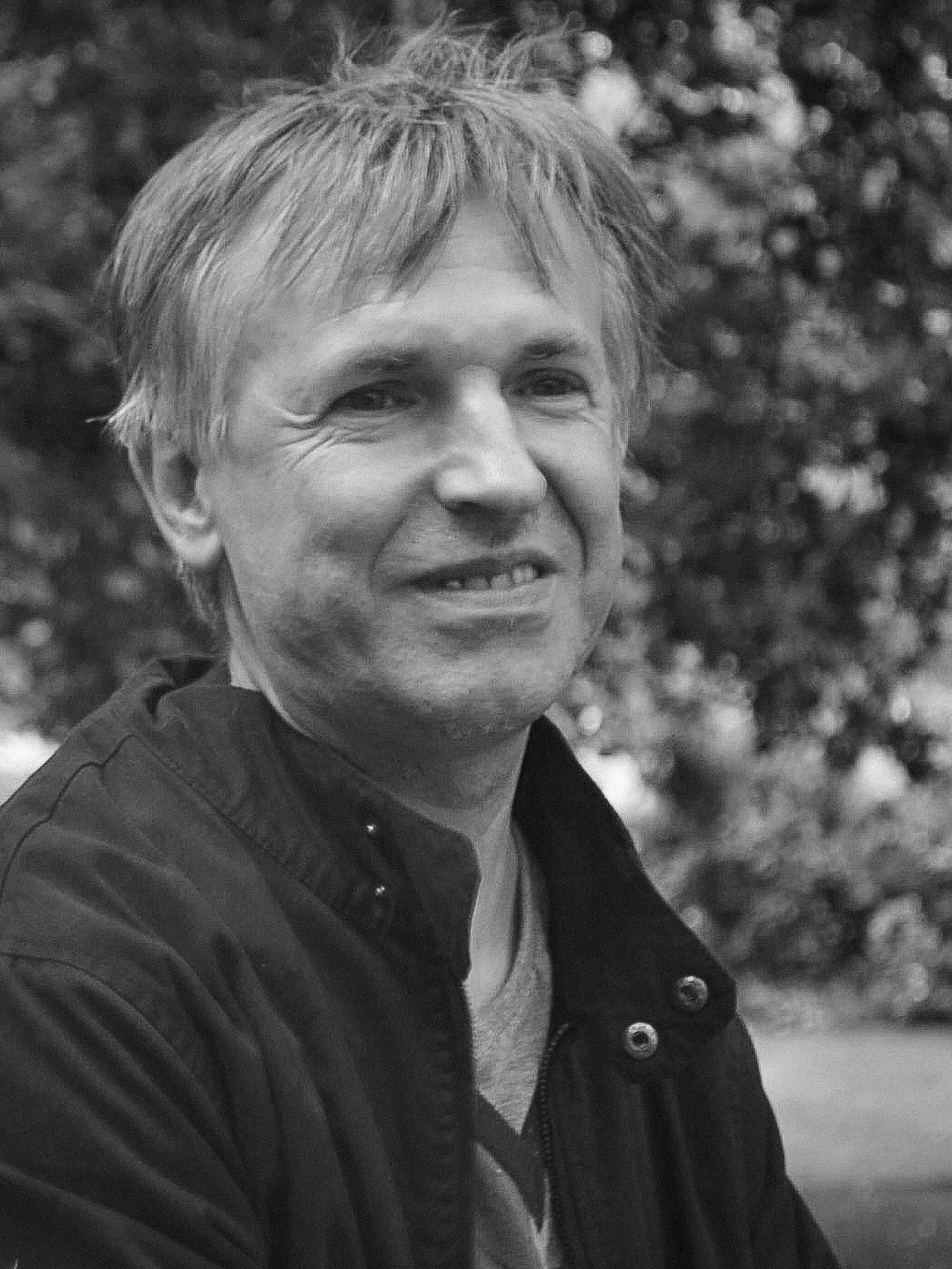1.9 The Taste of Depravity https://www.hedweb.com/animutop.htm
The Hedonistic Imperative https://www.smashwords.com/books/view/514875 (1995)
David Pearce: Frases en inglés
1.10 On the Misguided Romanticisation of Feline Psychopaths https://www.hedweb.com/hedethic/hedon1.htm#feline
The Hedonistic Imperative https://www.smashwords.com/books/view/514875 (1995)
“Confusion of sapience with sentience can be ethically catastrophic.”
Social Media Unsorted Postings 2016 https://www.hedweb.com/social-media/2016.html
Postscript to review https://www.hedweb.com/lockwood.htm of Michael Lockwood's Mind, Brain and the Quantum, BLTC Research, Dec. 2016
The civilising process needn't be species-specific but instead extend to free-living dwellers in tomorrow's wildlife parks. Every cubic metre of the biosphere will soon be computationally accessible to surveillance, micro-management and control. Fertility regulation via immunocontraception can replace Darwinian ecosystems governed by starvation and predation. Any species of obligate carnivore we choose to preserve can be genetically and behaviourally tweaked into harmlessness. Asphyxiation, disembowelling, and agonies of being eaten alive can pass into the dustbin of history.
" High-tech Jainism https://www.hedweb.com/transhumanism/neojainism.html", The World Transformed, Jul. 2014
" The Radical Plan to Phase out Earth's Predatory Species https://io9.gizmodo.com/the-radical-plan-to-eliminate-earths-predatory-species-1613342963", io9, 30 Jul. 2014
" The Antispeciesist Revolution https://ieet.org/index.php/IEET2/more/pearce20130726", Institute for Ethics and Emerging Technologies, 26 Jul. 2013
Quoted in Ethics Matters (2012) by Peter and Charlotte Vardy, p. 114 ISBN 978-0334043911
" The Good Drug Guide: The Responsible Parent's Guide to Healthy Mood-Boosters for All the Family https://www.hedweb.com/gooddrug.htm", BLTC Research, 2012
" Feeling Groovy, Forever https://ieet.org/index.php/IEET2/more/sirius20120314", Institute for Ethics and Emerging Technologies, 14 Mar. 2012
Infants and toddlers in particular need looking after. The problem - when I was a teenager - was that most of interventions I could think of to alleviate wild animal suffering might easily make things worse in the long run. Thus if we sought to rescue herbivores, then obligate carnivores (and their young) would starve. If we were to phase out carnivorous predators altogether, then there would a population explosion of "prey" species. Lots of herbivores would then starve too. The food chain seemed an inexorable fact of the world - a fact as immutable as, say, the Second Law of Thermodynamics. Only after reading Eric Drexler's classic "Engines of Creation: The Coming Era of Nanotechnology" did I gradually come to realize that there were technical solutions to all these problems - notably in vitro meat, immunocontraception, neurochips to modulate behaviour, nanobots to manage marine ecosystems, and ultimately rewriting the vertebrate genome.
" Interview with Pensata Animal https://www.hedweb.com/hedethic/interviewoct2009.html", Pensata Animal, 25 Oct. 2009
Why not aim for a cruelty-free world instead?
" Interview with Pensata Animal https://www.hedweb.com/hedethic/interviewoct2009.html", Pensata Animal, 25 Oct. 2009
" Storming Heaven: LSD and the American Dream https://www.hedweb.com/bokowfil.htm", BLTC Research (2009)
“[H]ere we come to the nub of the issue: the alleged moral force of the term "natural."”
If any creature, by its very nature, causes terrible suffering, albeit unwittingly, is it morally wrong to change that nature? If a civilised human were to come to believe s/he had been committing acts that caused grievous pain for no good reason, then s/he would stop - and want other moral agents to prevent the recurrence of such behaviour. May we assume that the same would be true of a lion, if the lion were morally and cognitively "uplifted" so as to understand the ramifications of what (s)he was doing? Or a house cat tormenting a mouse? Or indeed a human sociopath?
" Reprogramming Predators https://www.hedweb.com/abolitionist-project/reprogramming-predators.html", BLTC Research, 2009
" Reprogramming Predators https://www.hedweb.com/abolitionist-project/reprogramming-predators.html", BLTC Research, 2009
" The Abolitionist Project https://www.abolitionist.com/", Talks given at the FHI (Oxford University) and the Charity International Happiness Conference, 2007
" The Abolitionist Project https://www.abolitionist.com/", Talks given at the FHI (Oxford University) and the Charity International Happiness Conference, 2007
“A lot of people recoil from the word "drugs".”
which is understandable given today's noxious street drugs and their uninspiring medical counterparts. Yet even academics and intellectuals in our society typically take the prototypical dumb drug, ethyl alcohol. If it's socially acceptable to take a drug that makes you temporarily happy and stupid, then why not rationally design drugs to make people perpetually happier and smarter? Presumably, in order to limit abuse-potential, one would want any ideal pleasure drug to be akin - in one limited but important sense - to nicotine, where the smoker's brain finely calibrates its optimal level: there is no uncontrolled dose-escalation.
" The Abolitionist Project https://www.abolitionist.com/", Talks given at the FHI (Oxford University) and the Charity International Happiness Conference, 2007
" The Pinprick Argument https://www.utilitarianism.com/pinprick-argument.html", BLTC Research, 2005
" The Hedonistic Imperative: Heaven on Earth https://www.paradise-engineering.com/heav2.htm", BLTC Research
Dave's Diary https://www.hedweb.com/davdiary.htm, BLTC Research, May 1996
“It's easy to support the status quo if one is not another of its victims.”
Reply to Meet the people who want to turn predators into herbivores https://www.treehugger.com/natural-sciences/meet-the-people-who-want-to-turn-predators-into-vegans.html#comment-2393432394, TreeHugger, 4 Dec. 2015
2.7 Why Be Negative? https://www.hedweb.com/hedethic/hedon2.htm#negative*Negative-utilitarianism is only one particular denomination of a broad church to which the reader may well in any case not subscribe. Fortunately, the program can be defended on grounds that utilitarians of all stripes can agree on. So a defence will be mounted against critics of the theory and application of a utilitarian ethic in general. For in practice the most potent and effective means of curing unpleasantness is to ensure that a defining aspect of future states of mind is their permeation with the molecular chemistry of ecstasy: both genetically precoded and pharmacologically fine-tuned. Orthodox utilitarians will doubtless find the cornucopian abundance of bliss this strategy delivers is itself an extra source of moral value. Future generations of native ecstatics are unlikely to disagree.
2.7 Why Be Negative? https://www.hedweb.com/hedethic/hedon2.htm#negative
The Hedonistic Imperative https://www.smashwords.com/books/view/514875 (1995)
" Origins and Theory of the World Transhumanist Association https://ieet.org/index.php/IEET2/more/bostrom20071226", Institute for Ethics and Emerging Technologies, 26 Dec. 2007
"What Is Empathetic Superintelligence?" https://www.abolitionist.com/transhumanism/index.htm presentation, 29 Jan. 2011
“[N]othing is too terrible to be true if it is consistent with the laws of nature [...].”
" The Pinprick Argument https://www.utilitarianism.com/pinprick-argument.html", BLTC Research, 2005
1.9 The Taste of Depravity https://www.hedweb.com/hedethic/hedon1.htm#taste
The Hedonistic Imperative https://www.smashwords.com/books/view/514875 (1995)
1.9 The Taste of Depravity https://www.hedweb.com/hedethic/hedon1.htm#taste
The Hedonistic Imperative https://www.smashwords.com/books/view/514875 (1995)
